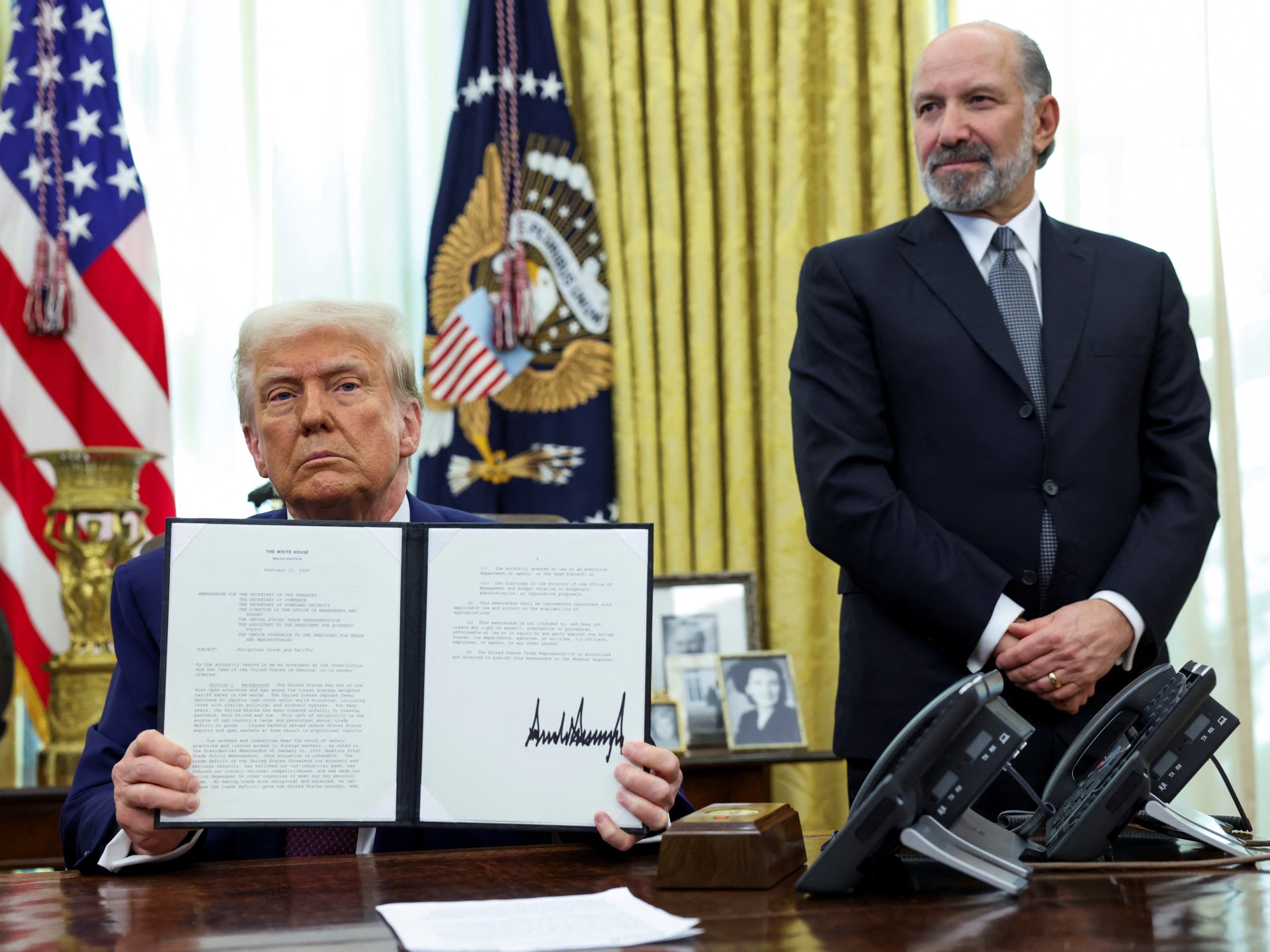United States President Donald Trump has signed a plan rolling out increased import duties for every trading partner that taxes US imports, stating that he was doing so to bring a sense of “fairness” to commerce.
Sitting in the Oval Office on Thursday, Trump described the tariffs as reciprocal, meaning that the US would automatically raise its own import taxes to match existing levels in other countries.
“On trade I have decided for purposes of fairness that I will charge a reciprocal tariff, meaning whatever countries charge the United States of America, we will charge them. No more, no less,” he said.
“In almost all cases, they’re charging us vastly more than we charge them,” he added. “But those days are over.”
While experts have raised concerns that Trump’s tariffs could set off a global trade war that would cause surging prices, Trump has long viewed trade as a matter of winners and losers — and he has argued that the US has been “very unfairly” treated by its allies abroad.
His heavy reliance on tariffs has also been seen as a departure from the longstanding bipartisan consensus on expanding free trade agreements with other countries.
Thursday’s tariffs are not expected to start immediately because it would require different tax hikes be set according to rates in different countries, a process that could take weeks.
Also on Thursday, he threatened the 10-country bloc known as BRICS — named for its founding members Brazil, Russia, India and China — with a “100-percent tariff at least” if the group proceeded with hypothetical plans to set up a common currency.
No such currency is in the works although BRICS leaders have floated the possibility in the past.
Still, Trump lashed out at the prospect in a question-and-answer session with reporters, accusing BRICS leaders of wanting “to play games with the dollar”.
“If any trading gets through, it’ll be 100-percent tariff at least,” Trump said.
The US president has frequently used tariffs as a means of coercing other countries to act in line with his priorities.
That includes proposed tariffs against Mexico and Canada, two of the US’s largest and closest trading partners. In November, shortly after his re-election, Trump announced he planned to impose 25-percent tariffs on both countries to force them to tighten security along the US border.
Economists and politicians alike warned of the crippling effects those tariffs could have on the economies of all countries involved.
“I want to speak directly to Americans,” Canadian Prime Minister Justin Trudeau said on February 1.
“Tariffs against Canada will put your jobs at risk, potentially shutting down American auto assembly plants and other manufacturing facilities. They will raise costs for you, including food at the grocery stores and gas at the pump.”
Shortly after that statement, both Mexico and Canada struck deals with the Trump team to delay the tariffs until March, in exchange for concessions like an increase in the number of Mexican national guard forces at the southern US border.
Still, Trudeau and other critics have called the prospect of tariffs a violation of the free trade agreements they struck, including the United States-Mexico-Canada Agreement, which was negotiated during Trump’s first term.
Also during Trump’s first term, Congress voted to extend permanent normal trade relations with China.
That decision, and free trade agreements in general, have been criticised by politicians like Senator Bernie Sanders, who argue those policies made it easier for companies to relocate factories to countries with lower wages and reduces unionisation rights and environmental protections.
While Trump has also been critical of free trade deals, he has declined to pursue typically left-wing priorities such as the promotion of collective bargaining rights for workers.
Tariffs can also be used to shield domestic sectors from foreign competition, but economists said that strategy is more typical of countries working to get domestic industries off the ground.
They also warned that after several decades of economic integration between allies, the sudden imposition of steep tariffs could lead to serious economic turmoil as well as rising prices for consumers.
Trump campaigned on lowering the cost of living, and he has since warned there may be some “pain” for consumers as a result of the tariffs.
